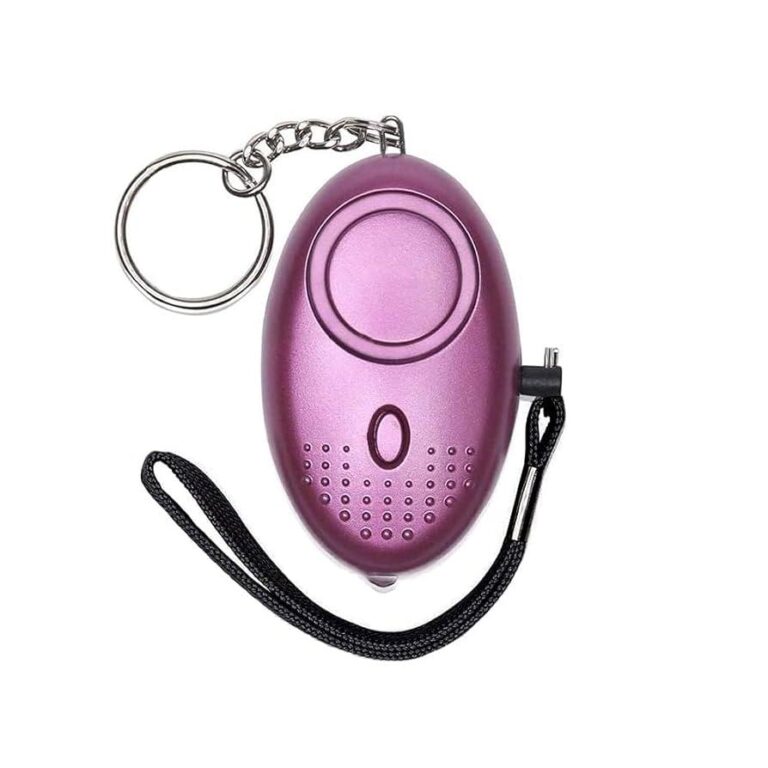Table of Contents
- How Personal Alarms Create Psychological Barriers for Potential Attackers
- The Role of Loud Alerts in Attracting Immediate Attention and Deterring Threats
- Integrating Personal Alarms into Daily Safety Routines for Maximum Effectiveness
- Choosing the Right Personal Alarm Features to Enhance Non-Confrontational Defense
- In Retrospect
How Personal Alarms Create Psychological Barriers for Potential Attackers
When a personal alarm sounds, it does more than just create noise; it establishes an immediate psychological deterrent. Attackers often rely on the element of surprise and the assumption of minimal resistance. The piercing alarm shatters this assumption, signaling that the target is prepared and equipped to respond swiftly. This sudden disruption not only increases the risk of apprehension but also forces potential assailants to reassess the situation, often leading them to abandon their intent before any physical confrontation occurs.
The psychological impact includes:
- Heightened awareness: The loud, unexpected noise attracts attention, making the attacker feel exposed and vulnerable.
- Perceived difficulty: The sound implies active resistance, suggesting the target is vigilant and possibly capable of further defense.
- Disruption of anonymity: The alarm draws witnesses, increasing the likelihood of intervention or immediate assistance.
By creating these invisible psychological barriers, personal alarms deter aggression without requiring victims to engage in direct confrontation, effectively reducing danger while empowering individuals to feel safer.
The Role of Loud Alerts in Attracting Immediate Attention and Deterring Threats
Loud alerts function as an immediate call for attention that disrupts the typical flow of a public environment. When a personal alarm is activated, its piercing sound cuts through ambient noise, creating a sudden and unmistakable signal that something is wrong. This high-decibel noise not only startles potential attackers by breaking their stealth but also instantly draws the focus of nearby people, increasing the likelihood of swift assistance. The alert acts as both a deterrent and a protective shield, leveraging sound as a non-aggressive weapon that empowers the wearer without physical confrontation.
Beyond simply grabbing attention, these alarms cultivate a psychological barrier that dissuades threats from escalating:
- Attackers become aware that their actions are no longer private, increasing their risk of being caught.
- The sudden disruption creates confusion and hesitation, often causing assailants to abort their plans.
- Presence of bystanders alerted by the alarm can escalate the situation quickly, making it unsafe for the attacker to proceed.
As a result, personal alarms serve as an effective passive defense tool that increases safety while minimizing the need for direct engagement, all through the strategic use of sound.
Integrating Personal Alarms into Daily Safety Routines for Maximum Effectiveness
Incorporating personal alarms into your everyday safety habits ensures they become a seamless part of your environment, ready to be activated the moment you feel threatened. Carry your alarm in an easily accessible spot-such as a wrist strap, keychain, or the front pocket of your bag. This strategic placement reduces response time and increases the likelihood of deterring an attacker before any physical confrontation occurs. Additionally, consider practicing how to activate your alarm quickly in various situations to build muscle memory, which can be critical during moments of panic or stress.
For enhanced protection, integrate the use of personal alarms with other preventative measures to create a holistic safety routine. For example:
- Inform trusted friends or family about your plans and check in regularly when in unfamiliar or potentially risky areas.
- Stay aware of your surroundings by minimizing distractions like headphones or mobile devices when walking alone.
- Pair alarms with smartphone safety apps that can send location alerts or call emergency contacts instantly.
- Choose alarms with different sound options, some of which may be more effective depending on your environment.
By weaving personal alarms into these daily practices, you amplify their effectiveness, making them a proactive tool that helps maintain your safety without needing to directly confront a potential threat.
Choosing the Right Personal Alarm Features to Enhance Non-Confrontational Defense
When selecting a personal alarm, prioritizing features that maximize deterrence without escalating conflict is essential. Look for devices with a loud, piercing sound-ideally above 120 decibels-that can immediately capture attention and disorient a potential attacker. An alarm with a long-lasting siren ensures prolonged awareness in your surroundings, giving you more time to escape or seek help. Additionally, a compact and ergonomic design allows for quick access and activation, whether attached to a keychain, worn as a pendant, or clipped onto clothing. This ease of use is critical for stressful situations where every second counts.
Other valuable features include a built-in LED light, which not only helps you see in the dark but can also draw attention when flashing. Many alarms now incorporate a one-touch activation button that prevents accidental triggering while guaranteeing immediate response when needed. Consider models with vibration alerts to notify quietly when in a noisy environment or when discretion is required. Lastly, some advanced options integrate with mobile apps or GPS tracking, allowing trusted contacts to be alerted instantly-providing an extra layer of security without any physical confrontation involved.
In Retrospect
In today’s world, personal safety is paramount, and personal alarms offer a powerful yet non-confrontational means to protect yourself. By emitting a loud, attention-grabbing sound, these devices effectively deter potential attackers without the need for physical engagement. They leverage the power of alerting others and creating a disruptive environment that discourages threats before they escalate. Whether you’re walking alone at night or navigating unfamiliar areas, a personal alarm can provide peace of mind and an essential layer of security. Embracing this simple tool empowers you to prioritize safety confidently-without ever having to face danger head-on.Check Our Other Blogs
- StunGun – Your Trusted Source for Stun Guns, Laws, and Self-Defense Tips
- PepperSprayLaws – Your Trusted Resource for Pepper Spray Information
- StunGunLaws – Your Trusted Guide to Stun Gun Legality and Safety



